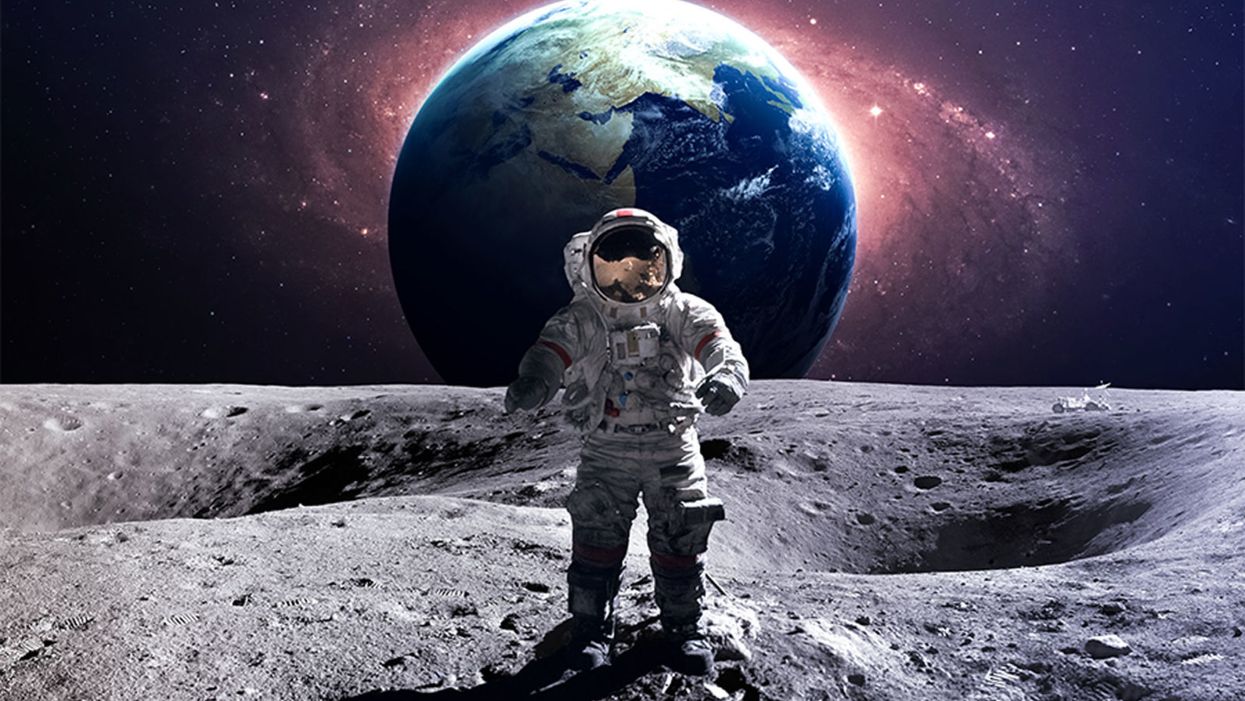Artificial Intelligence is getting better than humans at detecting breast cancer

A recent study in The Lancet Oncology showed that AI found 20 percent more cancers on mammogram screens than radiologists alone.
Since the early 2000s, AI systems have eliminated more than 1.7 million jobs, and that number will only increase as AI improves. Some research estimates that by 2025, AI will eliminate more than 85 million jobs.
But for all the talk about job security, AI is also proving to be a powerful tool in healthcare—specifically, cancer detection. One recently published study has shown that, remarkably, artificial intelligence was able to detect 20 percent more cancers in imaging scans than radiologists alone.
Published in The Lancet Oncology, the study analyzed the scans of 80,000 Swedish women with a moderate hereditary risk of breast cancer who had undergone a mammogram between April 2021 and July 2022. Half of these scans were read by AI and then a radiologist to double-check the findings. The second group of scans was read by two researchers without the help of AI. (Currently, the standard of care across Europe is to have two radiologists analyze a scan before diagnosing a patient with breast cancer.)
The study showed that the AI group detected cancer in 6 out of every 1,000 scans, while the radiologists detected cancer in 5 per 1,000 scans. In other words, AI found 20 percent more cancers than the highly-trained radiologists.

But even though the AI was better able to pinpoint cancer on an image, it doesn’t mean radiologists will soon be out of a job. Dr. Laura Heacock, a breast radiologist at NYU, said in an interview with CNN that radiologists do much more than simply screening mammograms, and that even well-trained technology can make errors. “These tools work best when paired with highly-trained radiologists who make the final call on your mammogram. Think of it as a tool like a stethoscope for a cardiologist.”
AI is still an emerging technology, but more and more doctors are using them to detect different cancers. For example, researchers at MIT have developed a program called MIRAI, which looks at patterns in patient mammograms across a series of scans and uses an algorithm to model a patient's risk of developing breast cancer over time. The program was "trained" with more than 200,000 breast imaging scans from Massachusetts General Hospital and has been tested on over 100,000 women in different hospitals across the world. According to MIT, MIRAI "has been shown to be more accurate in predicting the risk for developing breast cancer in the short term (over a 3-year period) compared to traditional tools." It has also been able to detect breast cancer up to five years before a patient receives a diagnosis.
The challenges for cancer-detecting AI tools now is not just accuracy. AI tools are also being challenged to perform consistently well across different ages, races, and breast density profiles, particularly given the increased risks that different women face. For example, Black women are 42 percent more likely than white women to die from breast cancer, despite having nearly the same rates of breast cancer as white women. Recently, an FDA-approved AI device for screening breast cancer has come under fire for wrongly detecting cancer in Black patients significantly more often than white patients.
As AI technology improves, radiologists will be able to accurately scan a more diverse set of patients at a larger volume than ever before, potentially saving more lives than ever.
Lab-grown insect meat could be the protein source of the future.
Agriculture in the 21st century is not as simple as it once was. With a population seven billion strong, a climate in crisis, and sustainability in farming practices on everyone's radar, figuring out how to feed the masses without destroying the Earth is a pressing concern.
Tufts scientists argue that insect cells may be better suited to lab-created meat protein than traditional farm animal cells.
In addition to low-emission cows and drone pollinators, there's a promising new solution on the table. How does "lab-grown insect meat" grab you?
Writing in Frontiers in Sustainable Food Systems, researchers at Tufts University say insects that are fed plants and genetically modified for maximum growth, nutrition, and flavor could be the best, greenest alternative to our current livestock farming practices. This lab-grown protein source could produce high volume, nutritious food without the massive resources required for traditional animal agriculture.
"Due to the environmental, public health, and animal welfare concerns associated with our current livestock system, it is vital to develop more sustainable food production methods," says lead author Natalie Rubio. Could insect meat be the key?
Next Up
New sustainable food production includes what's called "cellular agriculture," an emerging industry and field of study in which meat and dairy are produced via cells in a lab instead of whole animals. So far, scientists have primarily focused on bovine, porcine, and avian cells to create this "cultured meat."
But the Tufts scientists argue that insect cells may be better suited to lab-created meat protein than traditional farm animal cells.
"Compared to cultured mammalian, avian, and other vertebrate cells, insect cell cultures require fewer resources and less energy-intensive environmental control, as they have lower glucose requirements and can thrive in a wider range of temperature, pH, oxygen, and osmolarity conditions," reports Rubio.
"Alterations necessary for large-scale production are also simpler to achieve with insect cells, which are currently used for biomanufacturing of insecticides, drugs, and vaccines," she adds.
They still have some details to hash out, however, including how to make cultured insect meat more like the steak and chicken we're all familiar with.
"Despite this immense potential, cultured insect meat isn't ready for consumption," says Rubio. "Research is ongoing to master two key processes: controlling development of insect cells into muscle and fat, and combining these in 3D cultures with a meat-like texture." They are currently experimenting with mushroom-derived fiber to tackle the latter.
People would still be able to eat meat—it would just come from a different source.
Open Questions
As the report points out, one thing that makes cellular agriculture an attractive alternative to high-density animal farming is that it doesn't require consumers to change their behaviors. People would still be able to eat meat—it would just come from a different source.
But the big question remains: How will lab-grown insect meat taste? Will the buggers really taste as good as burgers?
And, of course, there's the "ew" factor. Meat alternatives have proven to work for some people—Tofurky is still in business, after all—but it may be a hard sell to get the masses to jump on board with eating bugs. Consuming creepy crawlies sounds simply unpalatable to many, and the term "lab-grown, cellular insect meat" doesn't help much. Perhaps an entirely new nomenclature is in order.
Another question is whether or not folks will trust such scientifically-created food. People already use the term "frankenfood" to refer to genetic modification -- even though the vast majority of the corn and soybeans planted in the U.S. today are genetically engineered, and other major crops with GM varieties include potatoes, apples, squash, and papayas. Still, combining GM technology with eating insects may be a hard sell.
However, we're all going to have to get used to trying new things if we want to leave a habitable home for our children. If a lab-grown bug burger can save the planet, maybe it's worth a shot.
Six Reasons Why Humans Should Return to the Moon
An astronaut does a spacewalk on the Moon.
"That's one small step for man; one giant leap for mankind."
This July 20th marks fifty years since Neil Armstrong, mission commander of NASA's Apollo 11, uttered those famous words. Much less discussed is how Project Apollo shifted lunar science into high gear, ultimately teaching scientists just how valuable the Moon could become.
A lunar-based solar power system would actually be cheaper than Earth-based solar power implemented on a global scale.
During the six missions that landed humans on the lunar surface from 1969 to 1972, Apollo astronauts collected some 842 pounds of lunar rocks and dirt. Analysis of these materials has provided us with major clues about the origin of Earth's celestial companion 4.51 billion years ago, but also has revealed the Moon is a treasure trove. Lunar rock contains a plethora of minerals with high industrial value. So let's take a look at some prime examples of how humanity's expected return to the lunar surface in the years to come could help life here on Earth.
24/7 solar energy for Earth
During the 1970s, scientists began examining the Apollo lunar samples to study how the lunar surface could be used as a resource. One such scientist was physicist David Criswell, who has since shown that a lunar-based solar power system would actually be cheaper than Earth-based solar power implemented on a global scale. Whoa! How is that possible, given the high cost of launching people and machines into space?
The key is that it would be enormously expensive to scale up enough Earth-based solar power to supply all of humanity's electrical needs, since solar power on such a scale would require a lot of metal, glass, and cement.
But the Moon's lack of atmosphere and weather means that photovoltaic cells built by robots from lunar materials can be paper thin, in contrast with the heavy structures needed in Earth-based solar arrays. Ringing the Moon, such a system would be in perpetual sunlight, making it cheaper to collect solar power there and beam it down to Earth in the form of microwaves.
A source of helium-3 for clean, safe nuclear fusion power and other uses
The gas helium-3 is extremely rare on Earth, but plentiful on the Moon, and could be used in advanced nuclear fusion reactors. Helium-3 also has anti-terrorism and medical uses, especially in the diagnosis of various pulmonary diseases.
A place to offload industrial pollution
Since there are minerals and oxygen in lunar rocks and dust, and frozen water in certain locations, the Moon is an ideal home for factories. Thus, billionaire Jeff Bezos has proposed relocating large segments of heavy industry there, reducing the amount of pollution that is produced on Earth.
The Moon could be a place for colonists to get their space legs before humans put down roots on more distant locations like Mars.
Radio Astronomy without interference from Earth
Constructed on the Moon's far side (the side of the Moon that always faces away from Earth), radio telescopes advancing human knowledge of the Cosmos, and searching for signals from extraterrestrial civilizations, could operate with increased sensitivity and efficiency.
Lunar Tourism
Using the Moon as a destination for tourists may not sound helpful initially, given that only the very wealthy would be able to afford such journeys in the foreseeable future. However, the economic payoff could be substantial in terms of jobs that lunar tourism could provide on Earth. Furthermore, short of actual tourism, companies are gearing up to provide lunar entertainment to fun-seekers here on Earth in the form of mini lunar rovers that people could control from their living rooms, just for fun.
Lunar Colonies
Similar to lunar tourism, lunar colonization sounds initially like a development that would help only those people who go. But, located just three-days' travel from Earth, the Moon would be an excellent place for humanity to become a multi-planet species. The Moon could be a place for colonists to get their space legs before humans put down roots on more distant locations like Mars. With hundreds or thousands of humans thriving on the Moon, Earthlings might find some level of peace of mind knowing that humanity is in a position to outlive a planetary catastrophe.

